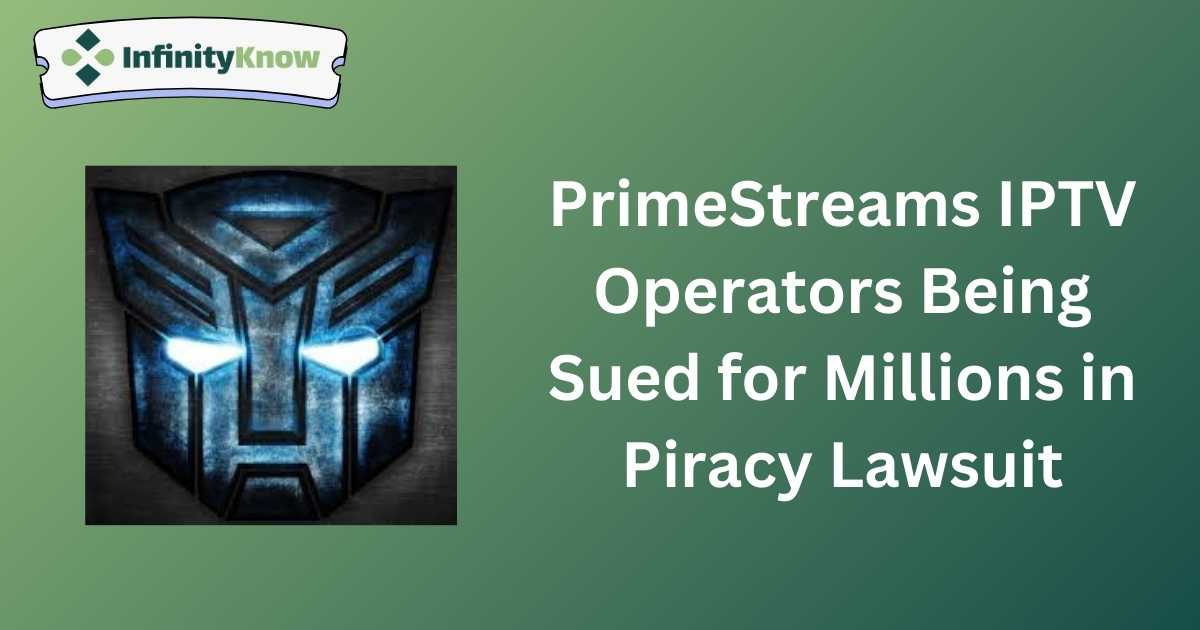The Sudden Downfall of a Leading IPTV Provider
PrimeStreams, a popular IPTV provider, met consumer demand for streaming entertainment by offering instant access to thousands of live TV channels, movies, and sports traditionally available through cable and satellite services. At its peak, this budget-friendly provider attracted hundreds of thousands of subscribers with its $20 monthly package, marketed as a complete cable replacement.
However, behind the scenes, PrimeStreams allegedly captured and retransmitted feeds from major content owners, such as DISH Network, without paying licensing fees or obtaining broadcast rights. This unauthorized distribution model helped minimize costs but inevitably put them at odds with media giants determined to protect their programming.
More Info : Best Iptv Provider
In September 2021, PrimeStreams received a cease-and-desist notice demanding an end to copyright violations. Despite this, the company continued its operations as usual. DISH Network and its subsidiary, Sling TV, responded by filing a federal lawsuit in a Kentucky court in May 2022 against PrimeStreams operators Daniel Scroggins and Steven Daugherty. They accused the operators of illegally “rebroadcasting DISH’s channels” to their subscribers.
While the exact damages sought are unspecified, experts anticipate DISH pursuing tens of millions of dollars, given statutory penalties of up to $150,000 per infringed work. This significant lawsuit underscores the mounting legal risks unauthorized IPTV services face amidst a global crackdown.
The Rise of IPTV Piracy
Live stream piracy has surged in recent years, fueled by the growing availability of high-speed internet and apps that simplify access to unauthorized content. Research firm MUSO estimates over 950 billion visits to piracy sites occurred in 2021 alone.
IPTV delivers streams directly to users, often via dedicated apps on devices like Firestick. Legitimate IPTV providers obtain broadcasting rights and deliver content legally to subscribers for a fee. However, rogue services pirate feeds and package them into subscriptions without compensating content creators.
The piracy-powered IPTV market is substantial, with ComplexOne research estimating its value at over $14 billion in 2021. One popular illegal provider, Xtream Codes, had over 500,000 subscribers before being shut down. These services’ ability to deeply undercut legal offerings by avoiding licensing costs drives their popularity.
However, this IPTV piracy epidemic causes severe revenue losses for networks, studios, and sports leagues, amounting to tens of billions annually. It also jeopardizes innovation and investment in future programming. While subscribers may benefit from lower costs in the short term, content diversity suffers long-term without stable funding.
Multi-Million Dollar Lawsuits on the Rise
As IPTV piracy persists, broadcasters and streaming platforms are combating it with lawsuits against major unauthorized services, seeking substantial damages.
In a landmark case, DISH Network sued SetTV in 2017 for illegally redistributing its channels to around 165,000 monthly subscribers. The court ultimately awarded DISH a $519 million judgment, aggregating the statutory maximum of $150,000 per infringed work.
Similarly, in 2021, DISH and NFL Enterprises won a $253 million verdict against pirate streaming provider StreamTVNow. Additionally, Nelive and SkyStreamTV shut down their illegal IPTV operations last year in the face of massive copyright lawsuits.
Given PrimeStreams’ scale, legal experts anticipate that DISH’s current lawsuit could result in damages of at least $750 million if willful infringement is proven. The inclusion of payment processor My IPTV Investments as a co-defendant also indicates DISH’s intent to disrupt the financial pipelines enabling piracy.
While costly, these lawsuits highlight the legal risks unauthorized IPTV services face. Aggressive litigation is expected to continue as media giants strive to protect their content rights.
Enhancing Authorized Streaming Models
For cord-cutters, the lesson is clear: avoid unauthorized IPTV channels, no matter how attractively priced. The threat of abrupt service termination and potential legal penalties is too significant.
Instead, rely on reputable streaming platforms like YouTube TV, Hulu Live, and Sling TV, which have proper broadcast licenses. Although more expensive than pirated IPTV, their $40-$70 monthly plans offer stability and thousands of channels legally. Extras like unlimited DVR storage provide added value.
Long-term, a shift towards more flexible “pay for what you want” models, similar to music and game streaming, could make lawful IPTV pricing more competitive. An app offering access to individual channels or networks on demand would be transformative.
Until then, bypassing IPTV pirates and directly supporting creators via legitimate streaming services is the safest bet for fans and the only sustainable path forward for the industry.
